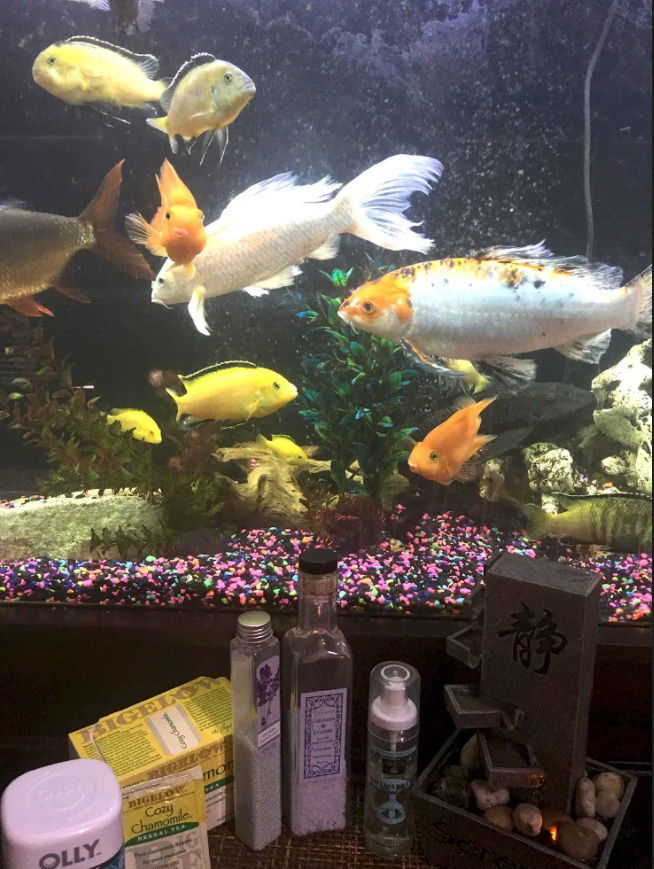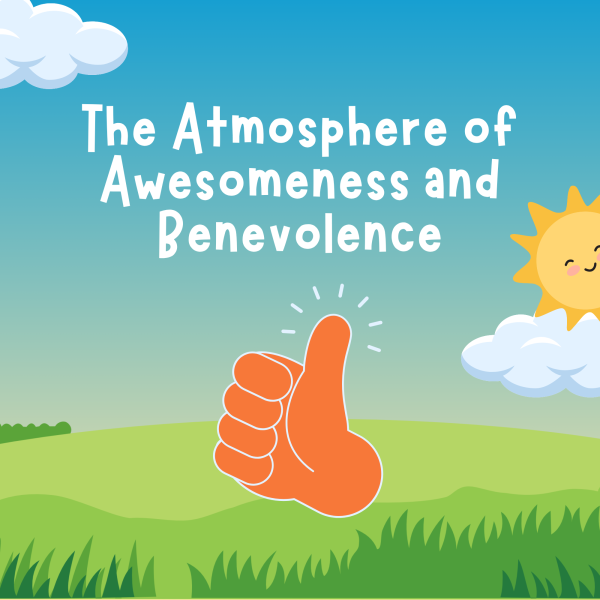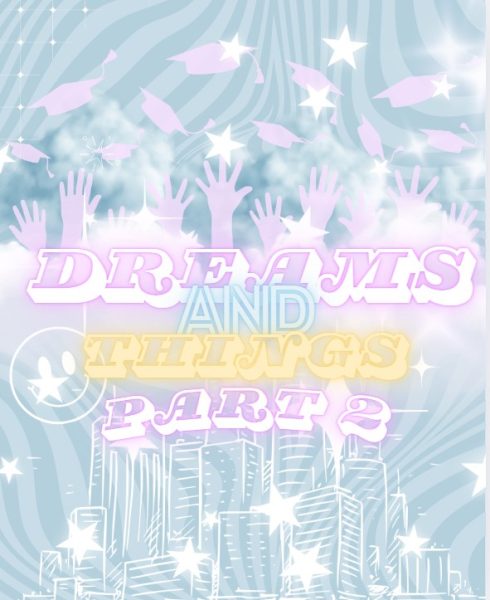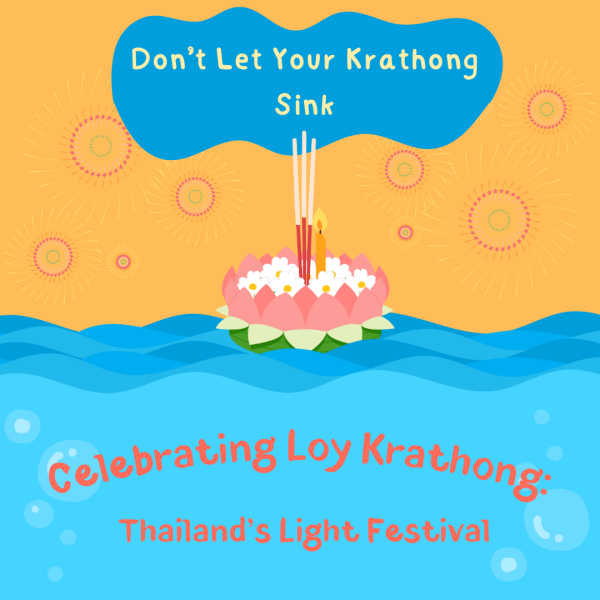MANAGING AND UNDERSTANDING STRESS AND ANXIETY
Here are a few tips to help manage stress and anxiety!
Managing stress is one of the most difficult things to do, because stress isn’t something you can just push off your shoulders, especially if you have a lot going on. I use many of the following remedies myself, as they tend to help people with anxiety to relax or begin the process of releasing tension.
Before I begin talking about how to fix stress and anxiety, it is extremely important for me to explain the psychological aspect of anxiety and stress. The part of our brain which causes anxiety is the same part that causes our fight or flight reaction, perceiving danger where there is none, called the amygdala. Our amygdala is practically identical as it was 200,000 plus years ago and is basically the same even when compared to a wild animal’s, which is what triggers the instinctual panic when it thinks you are in danger, thus having a very intense episode of this response is what causes panic attacks. For an example, one of my personal panic attack triggers includes being trapped by other people, pushed up against a wall, or surrounded. My body (my amygdala) will instinctually perceive this feeling of being trapped as a life-threatening danger and will make me push my way into an open space, or collapse before I can get there, which is the more common outcome, as, your amygdala can cause you to freeze up. Many people experience anxiety, panic attacks, and/or stress, which are all caused by this part of your brain. In this way, your brain is both looking out for you and hurting your psyche. In case you have a panic attack, a common method of calming down involves your senses.
• Name five things you can see
• Four things you can touch
• Three things you can hear
• Two things you can smell
• One thing you can taste.
Thankfully, there are many other kinds of remedies for reducing stress and making life generally easier, so that you don’t have to feel the fear of a panic attack and won’t need to use that remedy. Even more interesting, however, is that the remedies all have a different sense attached to them: seeing, hearing, touching, smelling, tasting, exactly like the trick above.
SMELLING
– Incense
Incense comes in a few forms, but the most well-known form is that of incense which you are meant to burn. My personal favorite form of incense is called Frankincense, but lavender is also a common pick. Lavender is known to have stress-reducing properties, and will be a reoccurring theme within this article. Incense also comes in reed form, where it diffuses the scent through a pot with reeds sticking out of it. Incense can be a more subtle smell or a very strong smell depending on what you choose.
– Wax Scent Melters –
I personally have a wax scent melter in my kitchen with lavender scent cubes. The scent melters look somewhat like a pretty flower pot with a lightbulb in them and have a small bowl-like indent at the top where you put in the wax scent cubes. The smell on these isn’t as strong as it seems like it would be.
– Scent Diffusors –
Scent diffusors are a lot like humidifiers that let out a gentle smell of whatever kind you get. Lavender, again, is a popular choice for these, and some of the common ones take on the appearance of a flower bud. They are a popular choice for counselor’s offices because they do not cause allergic reactions often, if at all.
– Pillow Mist –
These are actually surprisingly common, especially the variety known as pillow spray or sleeping spray, which you, fittingly, spray on your pillow and/or blankets lightly and it relaxes you into a calm sleep. I got one from the makeup store ULTA and it is scented like lavender and chamomile, my Mother and Father steal it rather frequently. The one I use is called “Anti-Stress Pillow Mist” and it is from Earth Therapeutics, but any pillow mist typically works rather well.
TASTING
– Stress-Reducing Vitamins –
Stress-reducing vitamins may sound like something only commercials would promote, but they actually work rather well. The ones I use from OLLY brand are called “Goodbye Stress” and can be found at any CVS or Walgreens type store. I was skeptical at first, but upon taking two when I felt stress rise, I was absolutely shocked to feel my tension begin to fade. They have a sort of lemony taste, but the gummies aren’t actually that bad at all.
– Chamomile tea –
Unfortunately this is the only one I have not experienced myself, as, I am not a fan of tea that isn’t cold and two-thirds sugar. However, I am good at making tea despite this, and I have seen the effects first-hand. Chamomile is well-known in the tea world for helping with sleep. I only recommend this remedy if you enjoy tea. Trying to reduce stress by drinking something you dislike will only make your negative energy worse.
HEARING
– Desktop Fountains or Fish tanks –
The room I work in has a large fish tank on the side of one wall that makes a gentle noise as the filters work, and my bedroom has a small desktop fountain beside my head. The gentle sound of a stream or a fountain can help many people relax, but it is all a matter of allowing yourself to be immersed in the sound.
– Soft instrumental music –
The most important thing is that you do this and another one of the stress reducing methods. Perhaps you put some anti stress mist on your pillow, close your eyes, and lie down for a bit, taking deep breaths, or maybe you’ll sit outside with some chamomile tea and put on your headphones, maybe take a vitamin or two while you’re at it. My personal go-to song is The Jurassic Park theme (cover) by The Piano Guys, because of the consistent soft piano and the gentle string instruments. I recommend something slow paced that your brain doesn’t have to think too hard to follow, and music is a common remedy for a lot of people. Just refrain from the heavy metal for a bit, though.
– Singing or humming –
Believe it or not, singing releases endorphins that make you feel good, and humming is a way to loosen up your vocal chords. Laughing does something similar, so hum a few slow notes or sing a gentle song.
TOUCHING
– Baths and Showers –
One of the easiest ways to reduce stress is by taking a quiet bath or shower and just focusing on the feel of the water. Through some experimentation I did I found that people tend to think the most when they are showering. I’m gonna make you do the opposite with a meditation trick I devised through careful studies of the people around me, of myself, and of guided meditation techniques.
Focus only on the water around you if you are in the shower. If you are in the bath, focus on the quiet around you, how undisturbed it is until you make noise. How you are in control of yourself and of the things around you, even if just while you’re in there. For both situations you are completely in control of the water’s temperature, of the noise in the room. You are in charge of yourself, you are in control, you will not let your stress control you. Take deep breaths and feel the stress fade with every slow exhale, take in your stress with each inhale, and then expel it deeply.
– Bath Salts and Bath Pearls –
Bath salts and pearls smell nice and also make your skin a lot softer, I personally use lavender bath salts and pearls from World Market, a tradition that began with my mom.
SEEING
– Finding a safe space –
The most important part of reducing your stress is to finding a room where you don’t have to look at your stress and can relax before facing it again. For a lot of people this is their bedroom, for me it is usually any couch in my home or my bedroom. My bedroom is decorated with a oriental theme, which helps me stay calm.
– Watching something you enjoy –
If you can, watching or reading something you enjoy can sometimes help lower lesser levels of stress for the duration of what it is you are doing, this is not a long-time fix, but it is a quick pick-me-up.
– Watching or playing with a pet –
If you have a pet, animals are known to reduce stress and lengthen your lifetime. If pets reduce stress and children lengthen your lifetime, and your pets are your children, maybe you’ll even benefit from both.
While writing this article, my fascination only grew, most of the knowledge comes from the depths of my memory or from my personal past research, and I searched diligently for some way to make my statements even more credible, as well as searching for methods that you could use without any of the above tricks and ask someone who had far more experience than I myself have. I ended up speaking to Mr. Seth Duban, a teacher at iUniversity Prep for Psychology, IPC, as well as Earth and Space Science. I sent him a message describing the article I wanted to write and he very kindly provided me with information, “For my years on this earth and science knowledge (I have procured) I would have two main tips on managing stress and anxiety:
Stay in the present. It is good to plan ahead and learn from mistakes but if you are at the point of becoming anxious about the future or brooding about the past, pull yourself out of it! Be conscious of when this happens and actively force yourself to accept that nothing is perfect and find something else to think about or productive to do.
Always remember to appreciates the positives in life. It is super easy to get hyper-focused on the few negatives and forget about all the good that surrounds us. There have been psychological studies that show that if you make a list and add three things you are grateful for every day, whether big or small, you train your brain to be overall happier and healthier” (Duban, S. 2018, February 26. Personal Interview).
I found that my therapist had said something similar to me. My therapist had given me homework to write down all the good things people said to me, rather than dwell on the negatives. She also gave me a trick to try falling asleep, telling me to let my thoughts run and when faced with them either give them the title of “Not mine (to worry about)”, “Not Important (usually for what if’s)” or “Not now”. It works incredibly well, and I invite everyone to try it.











